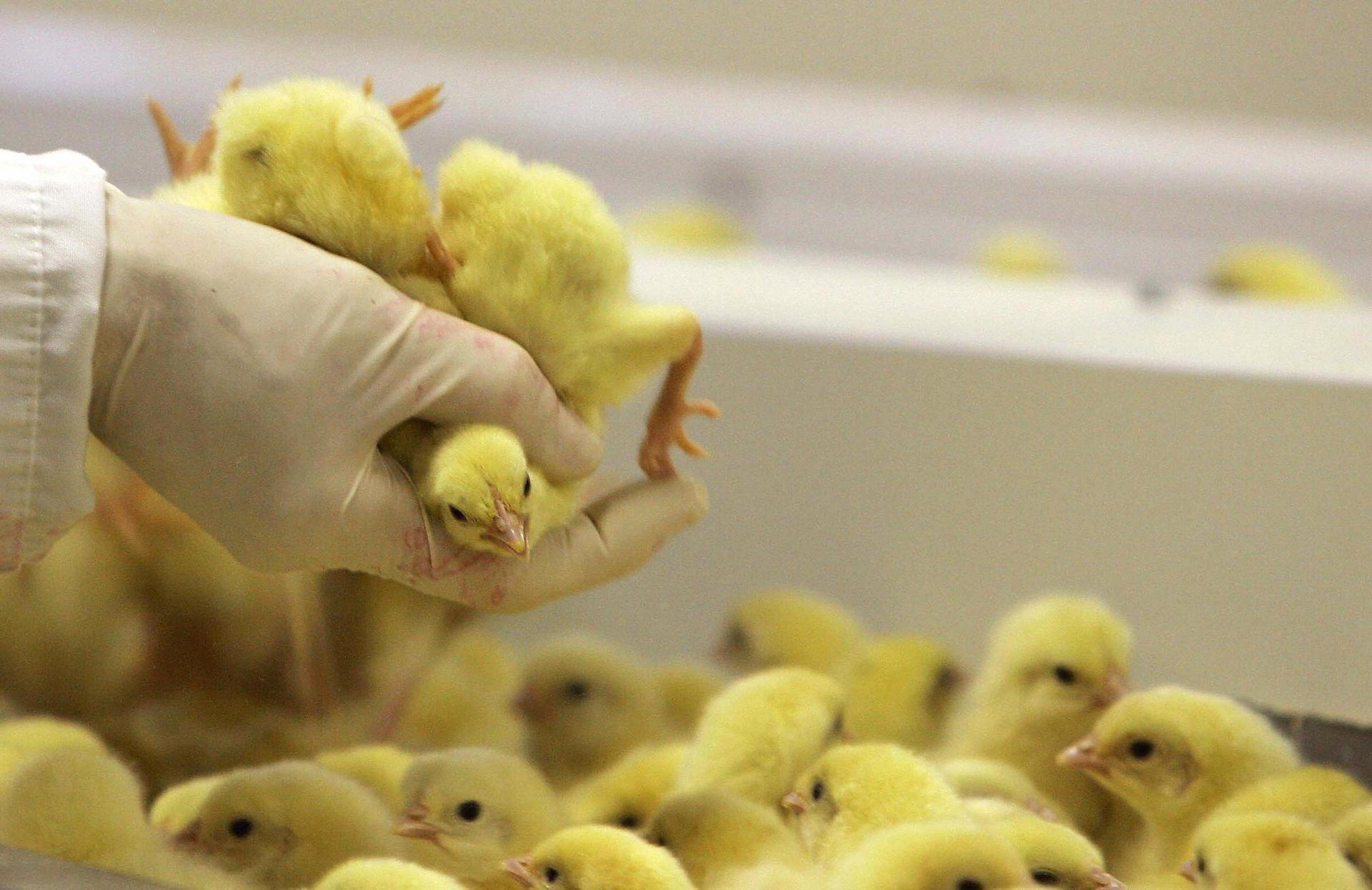Germany gasses or shreds 45 million newborn chicks each year. And it’s not alone
Newly hatched chicks.
BERLIN, Germany — This country loves its eggs, but there's a horrifying fact they'd probably rather not discuss over breakfast.
German chicken hatcheries send 45 million baby chicks to the shredder each year, for the simple crime that they can't lay eggs, because they're male.
Agricultural Minister Christian Schmidt is calling for a stop to the carnage. He wants to bring in gender tests on eggs before they hatch.
"As soon as appropriate equipment is available on the market, there will be no justification for the hatcheries to kill hatched male chickens," Schmidt said in a statement.
In many countries, killing male hatchlings is standard egg-industry protocol. The United States is said to kill hundreds of millions every year. Germany is the first country to make headway on banning the practice — the western state of North Rhine-Westphalia passed legislation in 2013 to turn off the shredders.
Although the law was repealed on the grounds that it violated the rights of German business enshrined in the constitution, Schmidt now wants to try again and phase out the entire practice nationally by 2017. He has allocated 1 million euros to find alternatives, including sex tests for the eggs that would let poultry farmers dispose of the male chickens before they hatch.
Two types of chickens are raised in Germany, meat chickens and egg chickens. While meat roosters survive alongside the hens till harvest time, the egg-producing birds are early on sorted by gender. The females are raised to lay eggs, and most males are either gassed or ground up to make animal feed shortly after hatching.
Some animal rights activists aren’t on board even with the egg-test standard — People for the Ethical Treatment of Animals (PETA) say there is no difference between destroying the chicken or the egg.
“This is more palatable for the public,” said PETA specialist Edmund Haferbeck. “But from an animal rights point of view, it’s just as bad.”
PETA stands against all consumption of animals and animal products, but Haferbeck noted that the egg sexing method would be more compliant with German animal cruelty laws that do not extend to fetal chickens.
German chicken farmers, on the other hand, are concerned about the new technology becoming a handicap for competing against egg industries in neighboring countries. The German poultry association ZDG argues that any regulations on disposing chicks should come from the European Union and not the German government.
“While the minister’s initiative shows German leadership, the ZDG calls for a European solution, because a unilateral move could cause production to be relocated abroad,” the ZDG said in a statement.
Schmidt’s office said it’s looking to outlaw the chicken shredding and gassing as soon as an alternative is ready. However, Haferbeck and the chicken farmers are doubtful that the egg testing will be implemented in the near future, because of the added costs.
One company thinks it may already have an answer.
Germany’s largest chicken producer, Lohmann Tierzucht, is working to create a hybrid chicken that could be used for both meat and eggs.
The “Lohmann Dual” lays fewer eggs than the standard Lohmann chicken and weighs less than broiler chickens, but the method could provide a possible solution for the poultry industry’s unsavory chick-shredding secret.
We want to hear your feedback so we can keep improving our website, theworld.org. Please fill out this quick survey and let us know your thoughts (your answers will be anonymous). Thanks for your time!
